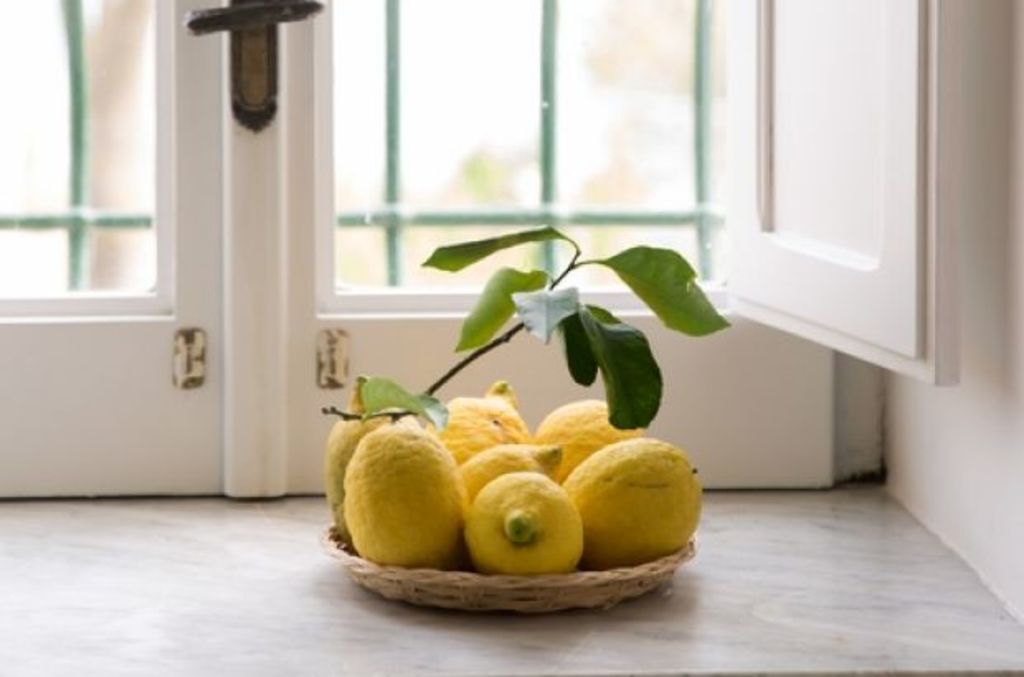Go chemical-free: four natural cleaners you probably already own

These cleaning solutions are cheap, environmentally friendly and may already be hiding in your pantry. Combine these with white vinegar and you’ve got your cleaning tools sorted.
BICARB SODA
Turns out, bicarb soda is good for more than just making your sponge cakes rise. This fuzzy white powder is a goldmine when it comes to cleaning, cutting through grease, restoring shine and eliminating foul odours.
Eliminate dishwasher odours
After pouring a cup of white vinegar at the bottom of your dishwasher and running an empty cycle, sprinkle one cup of bicarb soda at the bottom of your dishwasher and leave overnight. The dishwasher will smell fresh again come morning.
Rid fishy smells from your pans
A natural and effective way to remove fishy smells after frying fish is to clean the pan with a bicarb solution, made by combining a tablespoon of bicarb in warm water.
Freshen up the fridge and freezer
Fill a small container with bicarb soda and place in the corner of the fridge and freezer. It will absorb any smells and gradually purify the air. Replace it monthly.
Clean burnt pots and pans
If you have severe burn marks on your pots and pans, pre-soak with hot water, detergent and bicarb for 10 minutes. Then apply dry bicarb to a moist scouring pad and put some elbow grease into it.
Deodorise Tupperware
Bicarb acts as a great stain and odour remover for Tupperware. Simply make a paste and rub it into the inside. Allow it to sit for at least one day, then rinse it out.
Eliminate rubbish bin odours
Simply sprinkle a handful of bicarb soda on the bottom of your bin.
Deodorise any fabric
Has a bad stench embedded itself in your upholstered furniture or carpet? Sprinkle it with bicarb soda over the surface and let it work its magic overnight. Vacuum and notice how the smell has cleared.
Freshen up your sneakers
Sprinkle bicarb soda on the inner soles of your sneakers. This will absorb excess moisture and ensure they smell better upon your next wear.
Eliminate smelly hands
Smelly hands from chopping garlic and onion? When you’re done, wet your hands and sprinkle them with bicarb soda. Rub them together, rinse and dry.
SALT
Beyond adding kick to a bland dish, salt is a natural scrub, useful for everything from removing watermarks to wine stains.
Clean your vases
Clear mineral deposit marks from the bottom of your vase by reaching inside and rubbing them with salt, then rinsing away with water. If your hand doesn’t fit, create a salt paste and use a bottlebrush to scrub it clean.
Keep wicker looking new
Wicker can age and yellow when exposed to the sun. Keep it looking new by scrubbing with a stiff brush dipped in warm salty water. Allow to dry in the sun.
Look after your brooms
Soaking your new broom head in a bucket of salty hot water for 20 minutes – then allowing it to dry – will have it lasting longer.
Remove watermarks from wood
Create a paste by mixing one teaspoon of salt with a few drops of water. Gently rub onto the stain using a soft cloth and gently work over until the watermark is gone.
Stop ants from entering your house
Sprinkle salt across your doorframe to stop them marching into your house.
CITRUS
When life hands you lemons (or grapefruits, for that matter), why not use them to clean? A natural antibacterial, it contains citric acid, which deodorises, removes stains, cleans glass, inhibits mold and disinfects.
Clean your microwave
Simply squeeze some lemon into a bowl of water, drop the rind in and microwave it on high for three minutes. As it heats, it condenses on the sides of the microwave, dislodging grease and grime at the same time. Leave it inside for five minutes, then carefully remove the bowl and wipe the sides down with a clean towel.
Clean chopping boards
Sprinkle the board with coarse salt then scrub the surface using half a lemon. Squeeze slightly to release a bit of juice as you go. Once done, let sit for five minutes before scraping and rinsing clean.
Mix-it-yourself all-purpose kitchen cleaner
Fill a jar with white vinegar, and then add citrus peels until there’s enough to fill at least half the jar. Make sure the vinegar completely covers the peels. Secure the lid and allow it to sit in a dark place for two weeks. Then strain using a sieve, discard the peels and pour liquid into a spray bottle to use on kitchen and bathroom surfaces. You can even throw in a few thyme and rosemary sprigs for extra freshness.
Polish copperware
Restore shine to your copper cookware by rubbing with a lemon half dipped in table salt. Rub directly onto the copper until tarnish is removed. Rinse with warm water then buff to add extra shine.
Remove rust spots on knives
Left your knives by the sink for too long? Take care of rust spots by soaking them in a tall glass of lemon juice. The acid should loosen the rust, making it easier to wipe clean using a clean sponge.
Clean your blender
Whiz a lemon with some dishwashing detergent and water to clear hard water build-up and get your blender sparkling again.
SOAP FLAKES
A vintage spring-cleaning secret, pure soap flakes have no added perfumes or ingredients, making them a great option for babies and those with sensitive skin and allergies. You can buy soap flakes in a box or grate a bar of your usual household soap.
Eco-friendly laundry detergent
To make your own 100 per cent natural, biodegradable laundry detergent, mix a litre of water with 100 grams of soap flakes and three tablespoons of bicarb soda. Mix until the flakes have dissolved and leave to stand for an hour. Add another litre of lukewarm water and a few drops of essential oil. This is great for delicate clothing and won’t irritate sensitive skin.
And for colour clothes …
Remember that bicarb soda is a whitening agent. To make a laundry detergent for colours, use the same formula but substitute the bicarb soda for soda crystals.
We recommend
States
Capital Cities
Capital Cities - Rentals
Popular Areas
Allhomes
More







